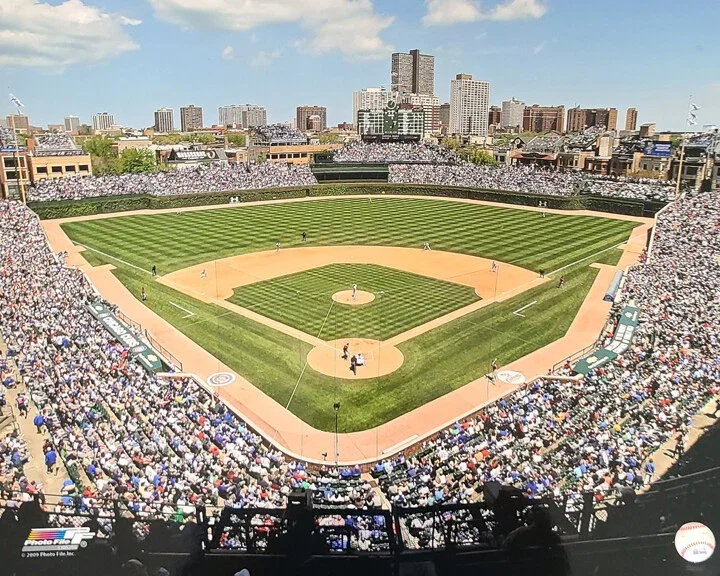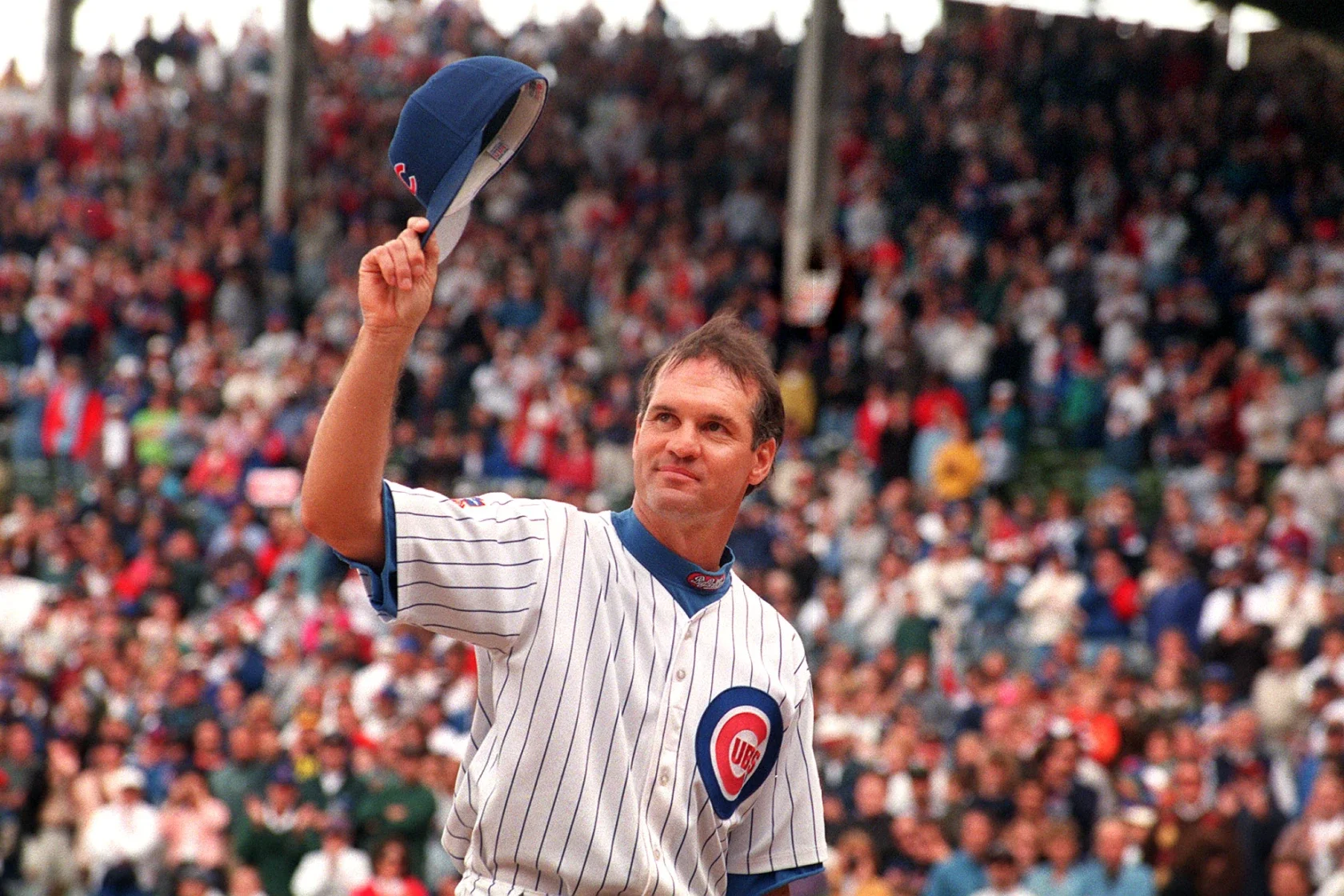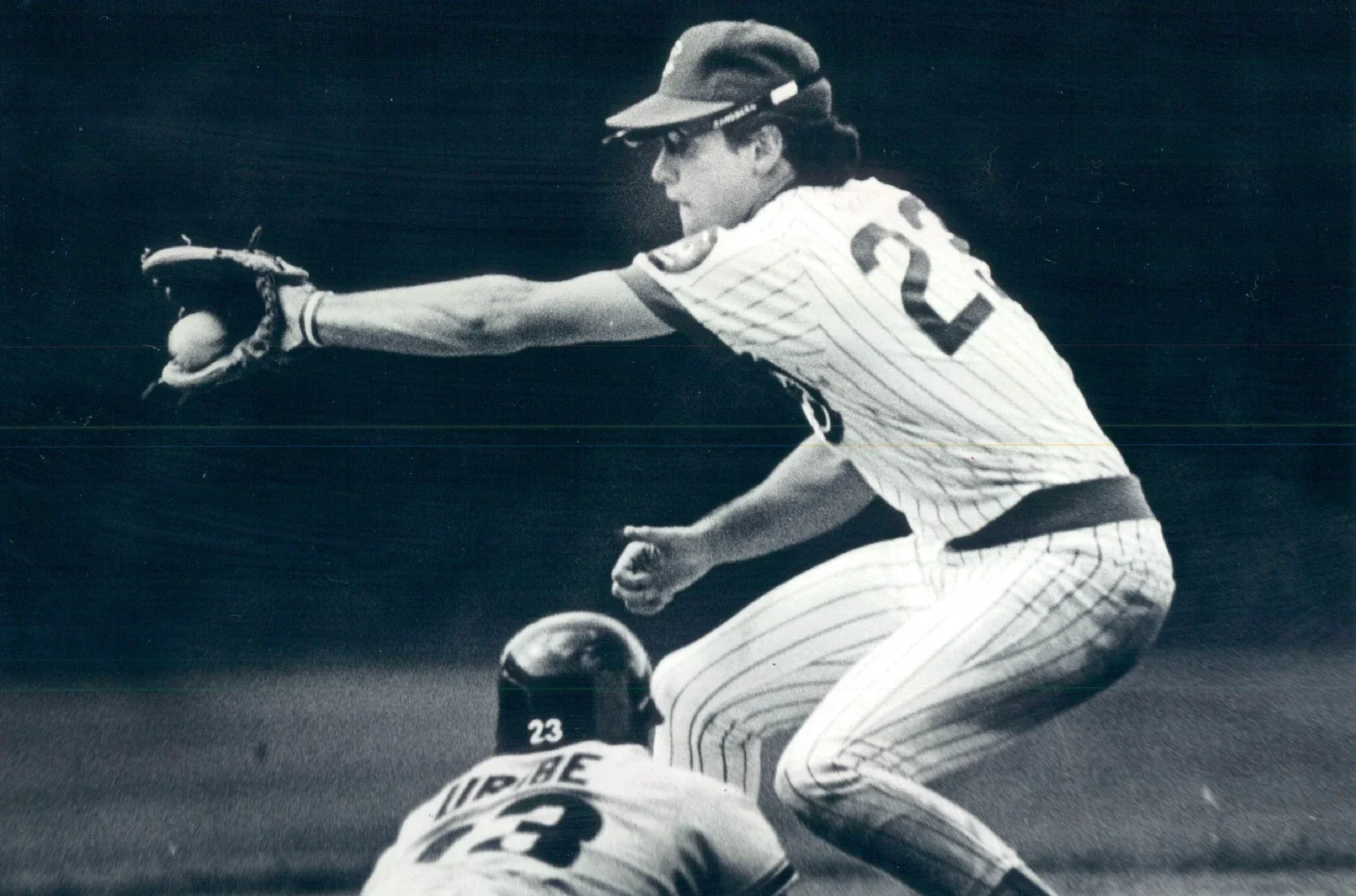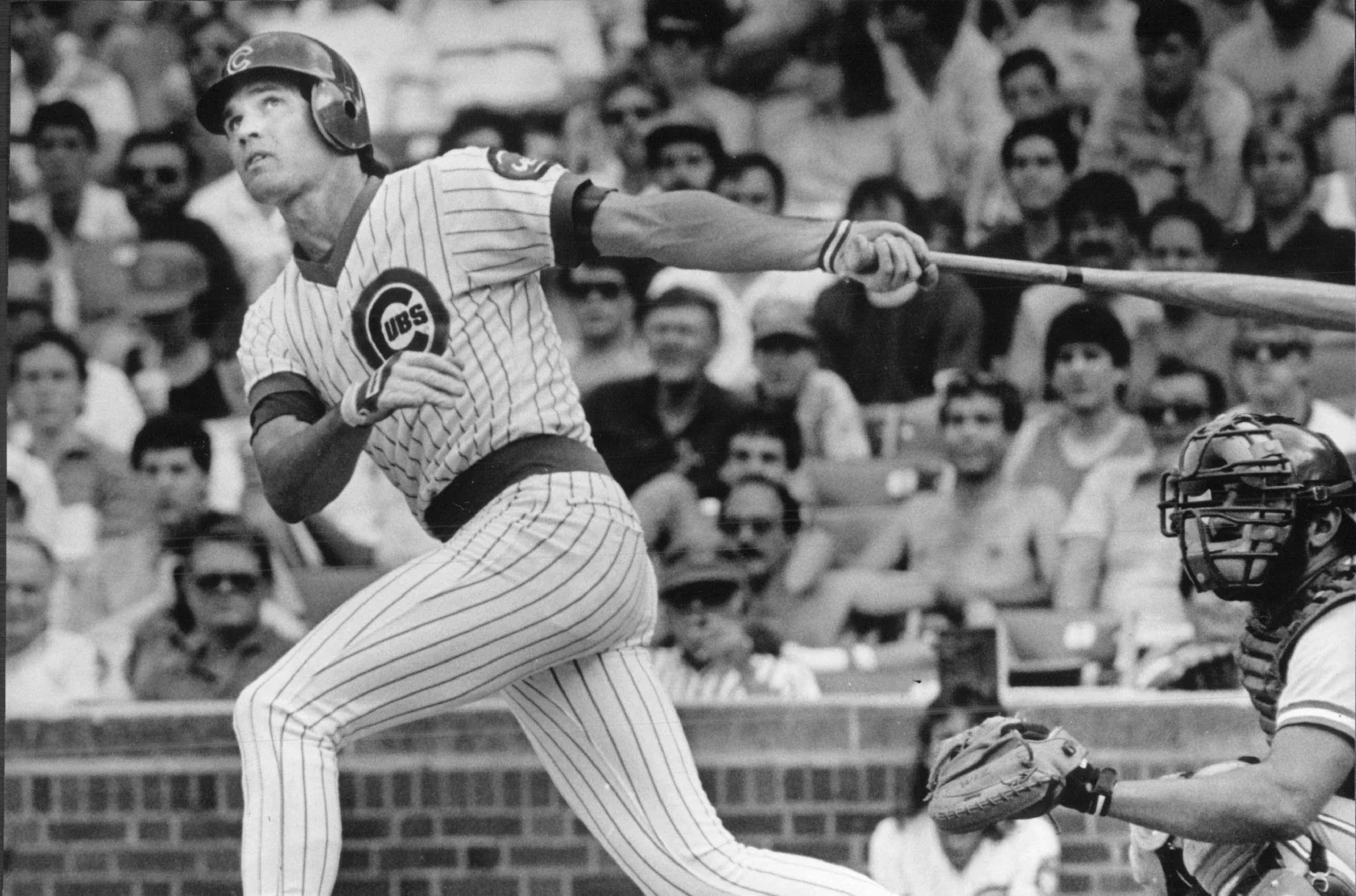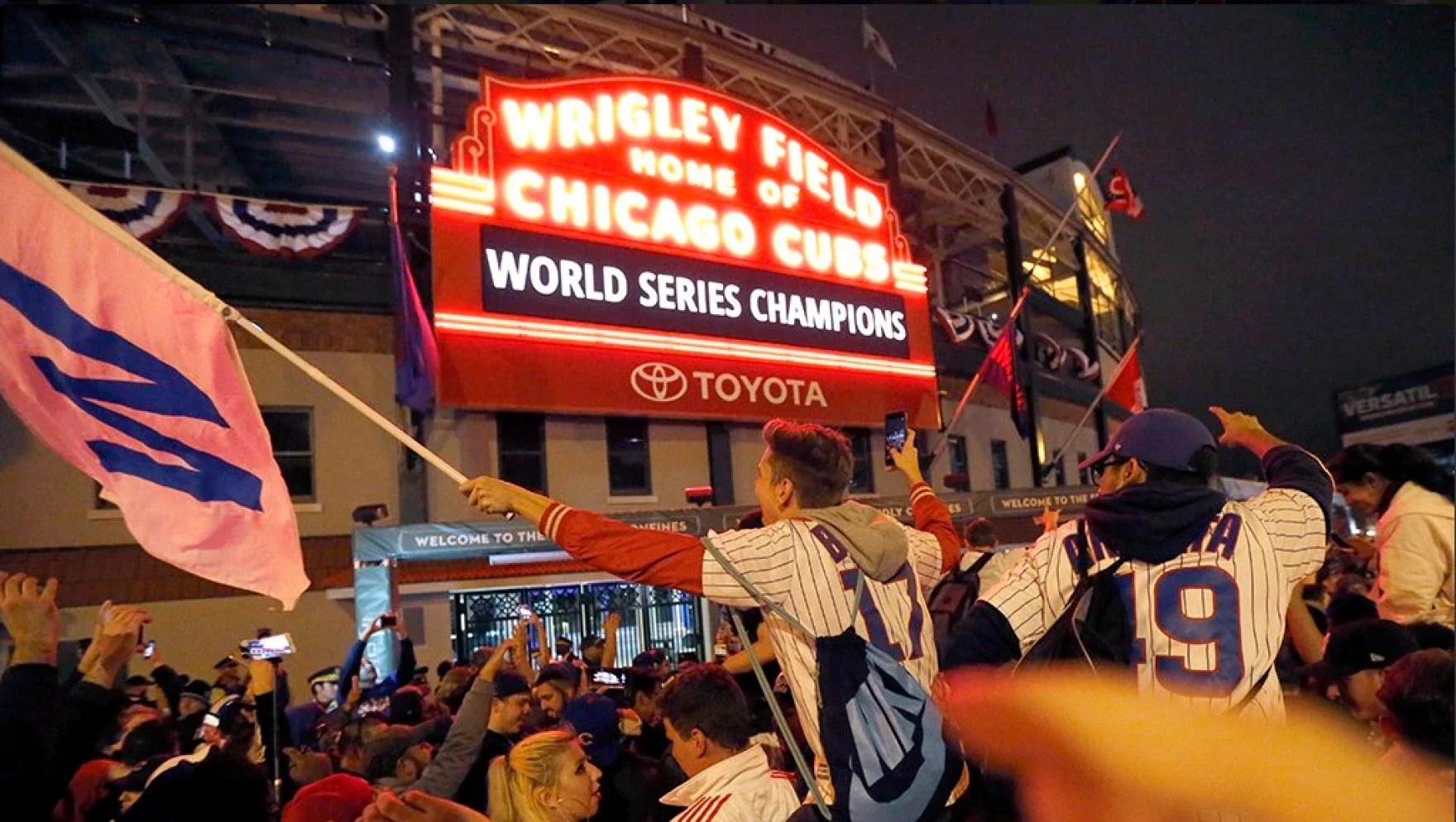Ryne Sandberg Taught Me to Try
I started writing this stream of thought as a series of posts on Bluesky, and when I got toward the end of my thread I realized (a) this would be a much better blog post; and (b) how much of my thinking was related to work. So, I’ve dusted off my blog to share a thought or two.
First off, why do we work the way we work? I don't mean "Why do we work?" (The answers to that are obvious: "I need to pay rent" or "Because I have to".)
Instead, I mean why do we choose to care about our effort at work and our output in a world where we are shown that our effort and output are fungible and don't really matter?
Moreover, how did hearing about the death of Chicago Cubs icon Ryne Sandberg make me think to write about this?
Like most things, I have to start at the beginning—but it'll only take a few moments.
Truly one of my earliest memories is being at Wrigley Field on the Northside of Chicago at age five. I have terrible recall of my childhood generally (NB: my childhood wasn't terrible; my recall was and continues to be). However, there are two moments I remember vividly:
Moment 1: Green and Cubbie Blue
Wrigley Field is old. It's had millions of dollars of renovations and enhancements over the last 30 years, but in 1992, it was showing all 78 years of its age: crumbling concrete, narrow aisles, the pervasive smell of Old Style beer and urine (to be fair, those are difficult to distinguish from one another), and—after entering from the sunny outside into the concourses under the stands—darkness.
But there's a moment when you are in the field level, nearing the top of the box seats, where the horizon blares into view between the overhang of the upper deck and the back of the top row of field-level seats. And what you see just about blinds you. Bright, sun-lit, emerald-green grass. As you keep moving forward more of the field is revealed: the sandy-tan of the diamond, the deep-blue of the summer sky, the dark-green of ivy-on-brick matching the ancient iconic scoreboard over the centerfield bleachers.
The moment where that space is revealed to you, something otherwise hidden in a neighborhood, is enough to take your breath away. That moment is the one where baseball gets its hooks in you. It's the sort of thing that can get you to care deeply about a sport that doesn't matter, around people you don't know, within a world that is utterly indifferent to the outcome of the game or to whether it makes you happy or sad.
Moment 2: Ryno Goes Deep
August 14, 1992, Ryne Sandberg hits a home run in the first inning. The crowd goes nuts and my reaction was to huddle in my seat and cover my ears (which might say more about undiagnosed sensory issues than about the crowd's response). My mom points out the obvious: "Ryno hit a home run!" I know this, but do they have to be so loud? (A familiar thought throughout my life.)
Fact is, fans at Wrigley didn't have a lot to get excited about in 1992. The team's fleeting success in 1984 and 1989 amongst decades of failure was fading. And, having been not-born-yet for the former and only three years old for the latter, all I knew about winning and success were tied up in the individual moments where players delivered. Maybe the team loses the game, but boy, Ryno—or the Hawk or Sammy—really put a charge into that one, didn't he?
Sure, they won’t make the playoffs, but not for lack of trying.
Wrigley Field, 1992; Image found here: https://www.ebay.com/itm/353240559510
Some Moments Come Too Soon
Ryne Sandberg died yesterday, July 28, 2025. Cancer took him, like so many, far too young—he was only 65.
Writing about what Sandberg meant to Cubs fans, especially those in the stands in 1992, The Athletics' Jon Greenberg wrote:
“For all that was wrong with the Cubs over the years, Sandberg, like Ernie Banks, Billy Williams and Fergie Jenkins before him, was all that was right. More than a compiler of statistics and a turner of double plays, he made Cubs fans feel something. There’s no greater honor for a ballplayer than to inspire hope in others.”
And there, among the many eulogies and commemorations of Sandberg's life, is the oft-quoted part of his Hall of Fame induction speech in 2005:
“The reason I am here, they tell me, is that I played the game a certain way, that I played the game the way it was supposed to be played. I don’t know about that, but I do know this: I had too much respect for the game to play it any other way.”
Images of Ryne Sandberg found at https://chicago.suntimes.com/cubs/2025/07/28/hall-of-famer-and-cubs-legend-ryne-sandberg-passes-away-after-battle-with-prostate-cancer
Reading this obituary with my coffee this morning brought another memory back from the deeper recesses of my brain. I wrote a college entrance essay about how being a Cub fan whose hope in the team wasn't about the expectation of World Series salvation, but just playing the game and trying and believing because that's all you can do. No one likes losing, but there's value in it when you've tried your best. It's instructive, and its validating. You did the work. You tried hard. You showed yourself respect.
I wouldn't say that Ryne Sandberg alone is the reason I take effort and commitment very seriously in my work and in my personal life. My mother raised me the Cub fan in the first place after all, and she and my dad should probably get the most credit. But whether I realized it then or not, Sandberg was an example for me. That example said, "Respect the game you play." That example says, "Try."
Forget the outcome.
Just try.
This Moment Now
Today— temporally, geographically, and spiritually far from the green fields of youth—I need that example more than ever.
Many of us are driven to not want to try by all kinds of forces. There is a nihilism at the heart of—well...seemingly everything. Still, we do try. But goddamn does it seem like trying gets you nowhere sometimes.
"Forget the outcome. Just try."
I'm grateful for a reminder that trying isn't important for specific reasons. It doesn't matter because there is a specific outcome that has to occur. Or because there are numbers to beat this quarter. Or because you have to appear productive in the eyes of Capital.
It matters because it's moral choice. It matters because if you don't try, why do it? Trying matters because it is right on its own.
You try because there is dignity and integrity in the act of your labor.
One Last Moment
It's late on November 2, 2016; actually, it's probably already November 3rd. I need a moment to myself, so I leash up the dog and take him out. The fresh air is grounding me.
I walk down Seaman Avenue in Inwood, Manhattan. I can hear the postgame broadcast from the open windows of apartments whose tenants need to let some cool autumn air into the room. Dominican-inflected Spanish filters out of the same open windows. Despite a mostly-empty street, the neighborhood is buzzing from behind those windows—probably one of the few places in the country where baseball is still a civic religion.
Obviously, most of my neighbors in this part of New York City aren't Chicago fans—if anything they'd root for Cleveland because Manny went to high school down in Wash Heights. (Sure, he left Cleveland years ago, but allegiances are like that—they saw Manny play in Yankee Stadium plenty.) But still, the air is alive. That game was something. That was for everyone.
Out there on the sidewalk, I’m smiling in disbelief and quietly crying at the same time.
108 years of trying. 108 years of maintaining hope. 108 years of fans being born, living long lives, and not seeing a championship.
But I was wrong. We don't just try because its a moral good on its own. Sometimes trying gets you to game seven. Sometimes trying gets you extra innings. Sometimes trying gets you just over the top.
We try because it's the only way to make things happen; the only way for things to change.
We try because what else can you do?
How else can you play it any other way?
November 2, 2016: Cubs Win. Image found at https://www.wamc.org/sports/2016-11-03/sportsreport-chicago-has-finally-done-it-the-cubs-win-world-series
Postscript: Keep Trying
If you’re like me, you have plenty of anxieties about how your effort in life or in work—even in some small way—is contributing to making the world a less awful place. If direct action is difficult or impossible for you, consider supporting groups that provide it. Here are a few that are top of mind today:
Al Otro Lado:
”Al Otro Lado provides holistic legal and humanitarian support to refugees, deportees, and other migrants in the US and Tijuana through a multidisciplinary, client-centered, harm reduction-based practice.We provide direct, free, legal services on both sides of the US-Mexico border and beyond. We engage in zealous individual representation, medical-legal partnerships, and impact litigation to protect the rights of immigrants and asylum-seekers.”
UNRWA:
The United Nations Relief and Works Agency supports Palestinian refugees. Currently, they are on the ground in Gaza fighting famine.The American Cancer Society:
Ryno had prostate cancer. My dad had multiple myeloma. You or your friend or your loved one or your acquaintance had some other cancer. Federal funds are being cut from research. Now is a good time to start giving.The Trevor Project:
Sometimes “trying” means “deciding to stick around another day” in a world that tells you you don’t matter and shouldn’t exist. The Trevor Project provides suicide prevention support for LGBTQIA+ kids, along with public advocacy, support, and education.
Patrick and his wife at Wrigley Field. Image is my own.

